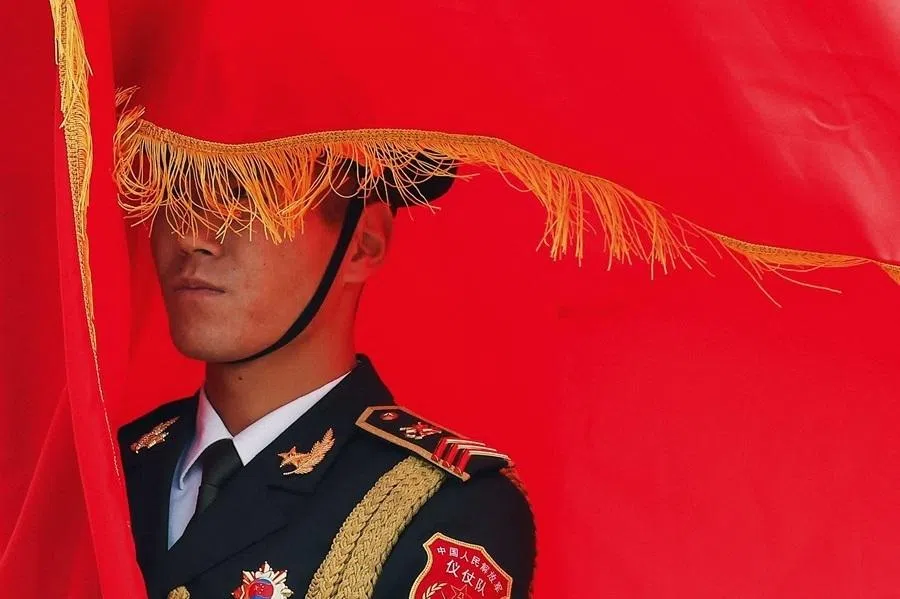[Video] Street massages in Shenzhen: A scam or a steal?
Cheap street massages are becoming an increasingly common sight in Shenzhen. What are the roots of this phenomenon and what is it like actually getting a street massage? Lianhe Zaobao Shenzhen correspondent Daryl Lim finds out.
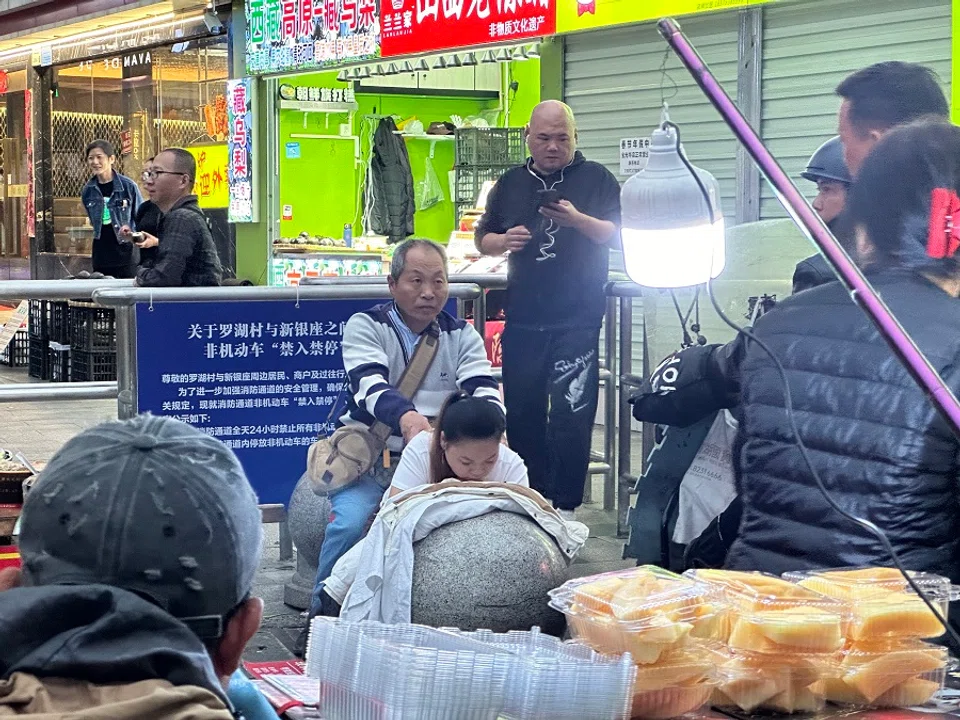
(Photographs by Daryl Lim unless otherwise stated.)
“Massage? Free trial, no charge!”
Such calls, which rise and fall one after the other, provide a unique background sound when strolling along Renmin South Road in Luohu District, Shenzhen.
In recent months, a new kind of street culture has quietly emerged on this road near the Luohu border crossing between Shenzhen and Hong Kong. Armed with just a folding chair, white coat and promotional sign, men and women of various ages and backgrounds in Shenzhen transform themselves into “street masseurs”. At its peak, there were as many as 15 masseurs operating along the street simultaneously.
A last resort
Among them is 45-year-old Long Fenghua. A single mother from Huaihua, Hunan, Long used to run a beauty salon, but it closed down due to the pandemic. On top of that, her savings were depleted by her mother’s battle with cancer. Last September, she came to Shenzhen, hoping to eke out a living on the city’s streets.
In an interview with Lianhe Zaobao, Long explained that she chose street massage because, being older, she preferred working in the service industry over the mundane task of “tightening screws” in a factory. However, many service industries in Shenzhen have age restrictions. In contrast, street massage has a low entry barrier and offers greater flexibility.
She said: “Many people get tired while shopping, so we provide them with a place to rest and an affordable massage. I can serve five or six customers a day, earning around 2,000 to 3,000 RMB (US$273.60 to US$410.10) a month, enough to cover basic living expenses.”
As a border city adjacent to Hong Kong, Shenzhen has long relied on a thriving port economy, attracting a large number of Hong Kong residents for cross-border consumption. Spas and massage parlours are everywhere, catering to Hong Kong visitors’ demand for relaxation and wellness services.
The masseur’s technique was unsystematic — a combination of casual and haphazard movements that shifted back and forth between the shoulders and neck, occasionally punctuated by sudden slaps.
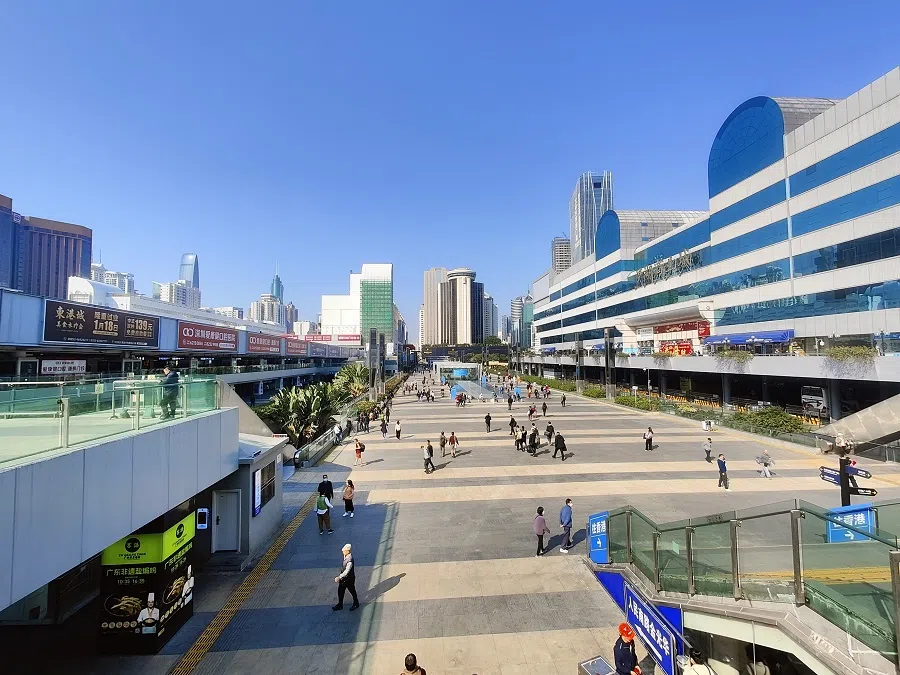
Although cross-border travel between Shenzhen and Hong Kong resumed in 2023, leading to a rapid recovery in post-pandemic consumption and a surge in foot traffic, the economic impact of the pandemic has not completely faded. For those struggling to sustain their businesses, street massage has become a last resort.
Luo Jiyun, 42, from Wuhan, used to run a massage therapy clinic in Shenzhen before the pandemic. However, due to lockdown measures, her shop remained closed for months while rent piled up, and she was eventually forced to shut down.
She said: “After the pandemic, everything had to start over. Many people had no choice but to begin again from scratch. Setting up a street stall became the only option. What else could we do? Life has to go on.”
The street massage experience
Getting a massage in Shenzhen is usually an ordinary experience. However, being “kneaded” by an unknown masseur in the middle of a bustling street is an entirely new experience.
With an open mind, I randomly picked an enthusiastic street masseur, ready to experience a different kind of massage. I had barely been seated when I felt the masseur’s hands on my shoulders, without preamble or ceremony.
The masseur’s technique was unsystematic — a combination of casual and haphazard movements that shifted back and forth between the shoulders and neck, occasionally punctuated by sudden slaps. Unlike professional massage therapists, who follow a structured approach with precise techniques and controlled pressure, the street massage felt more like an impromptu performance.
The 15-minute shoulder and neck massage was priced at 20 RMB. However, as the masseur applied pressure, they also persistently upsold additional services. Eventually, the session was extended to 30 minutes, with the fee doubling to 50 RMB. For plus-sized customers, a common sales pitch was almost inevitable: “You have a noticeable hunch and excessive cold energy. I recommend additional treatment.”
Upselling and lack of price transparency a common experience
The so-called low-cost massage seemed more like a bait to reel customers in; the real profit lay in the additional services that were being pushed. Many customers ended up disputing the additional charges with the masseurs, as unclear pricing and ambiguous service durations made for a less-than-transparent consumer experience.
Ms Lin, a visitor from Hong Kong, said: “I was drawn in by the cheap price, but when the massage ended, she asked me for 50 RMB. I wasn’t keeping track of the time. The process was not transparent, and I was caught off guard.”
A massage is supposed to be a relaxing experience, but on a bustling street, the constant gaze of passersby leads to an unavoidable sense of “social death” — the embarrassment of being a public spectacle...
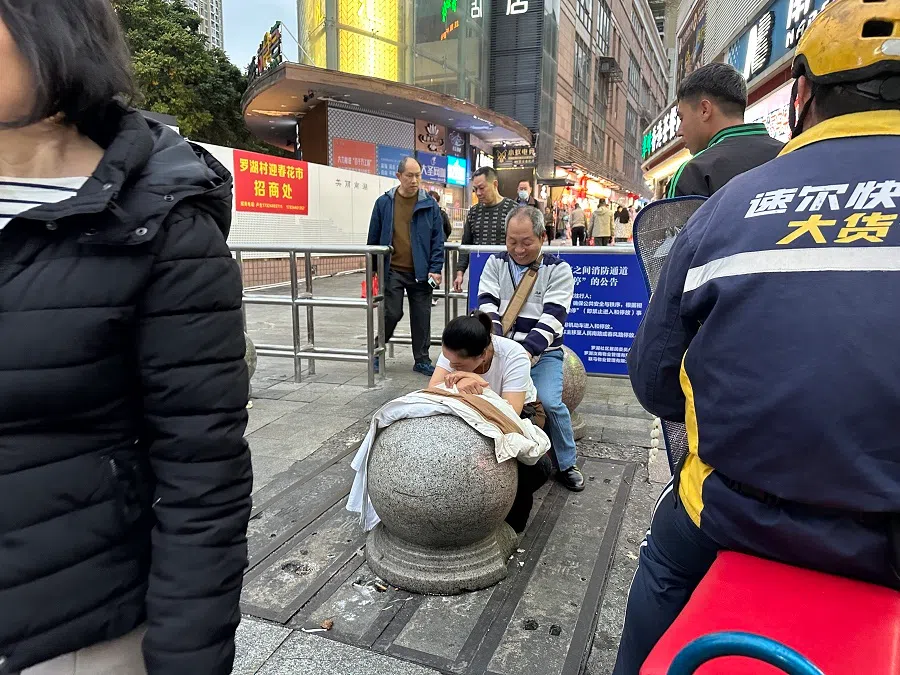
Ironically, just a short distance away, there was a legitimate massage and foot spa offering 60-minute sessions for 80 RMB. In terms of duration, the store’s pricing was actually more cost-effective than the street massages.
A massage is supposed to be a relaxing experience, but on a bustling street, the constant gaze of passersby leads to an unavoidable sense of “social death” — the embarrassment of being a public spectacle, which makes the massage an anxiety-inducing, awkward and uncomfortable experience.
Lax policies, haphazard stalls
Street vending is a direct reflection of urban life, showcasing a city’s vibrancy, diversity, and close ties to the livelihoods of its people. However, over the past five years, China’s policies on street vending have fluctuated multiple times.
In May 2020, then Premier Li Keqiang strongly advocated for the “street vendor economy” during the National People’s Congress, introducing policies encouraging unemployed individuals to make a living as small-scale vendors, in order to safeguard livelihoods. However, this policy faced a swift reversal within a week. Beijing Daily published an article saying that “the street vendor economy is not suitable for Beijing”, a sentiment quickly echoed by major media outlets. As a result, the initiative was stifled before it could take root.
“Over the past two years, enforcement has indeed become more lenient than before. As long as we don’t block the road, they are generally not too strict.” — Luo Jiyun, a street massage vendor
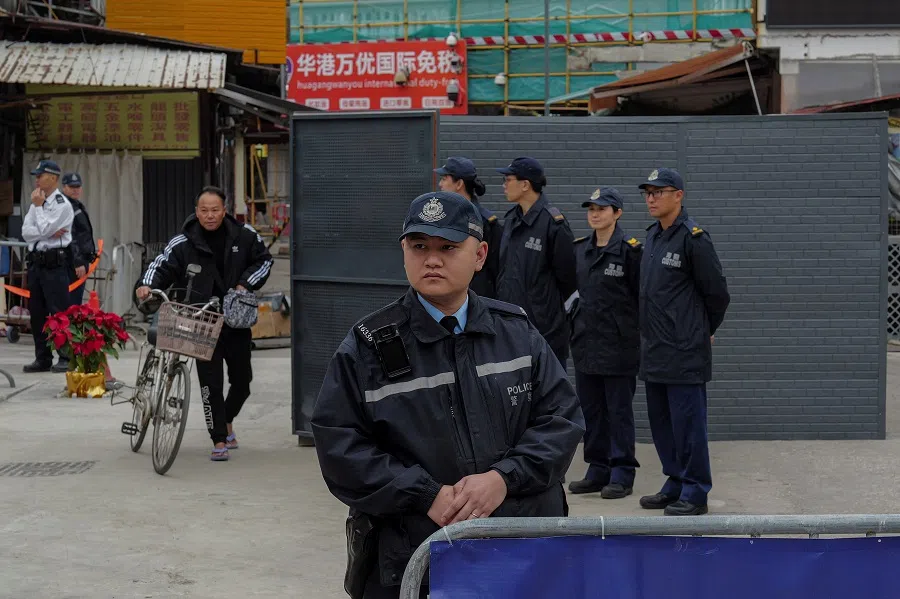
In 2023, following the economic boom sparked by the Zibo barbecue phenomenon, cities like Beijing, Shanghai and Shenzhen gradually relaxed restrictions on street vending. Notably, a new regulation in Shenzhen that kicked in on 1 September 2023 explicitly allowed district offices to designate vendor areas based on local conditions, aiming to preserve the city’s bustling street culture.
However, many street vendors say that despite the relaxation of policies, the actual situation has not significantly improved, and the cat-and-mouse game between them and urban management enforcement officers (chengguan, 城管) continues to play out daily.
Luo Jiyun said: “Over the past two years, enforcement has indeed become more lenient than before. As long as we don’t block the road, they are generally not too strict.”
Another vendor, Luo Zewei, who sells acrylic bead ornaments on the street, admitted that the only change now is that chengguan no longer confiscate their goods, but only disperse the vendors. Although this still affects business, the losses are a lot less than before.
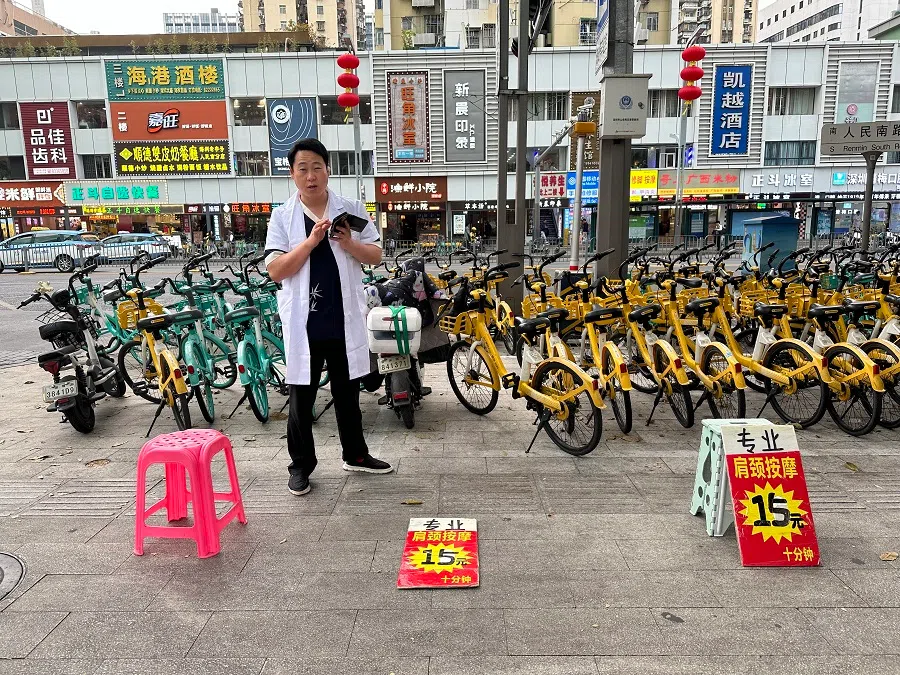
An enforcement officer who declined to be named said that while the government allows street vending, it must be conducted in designated areas, with the key requirement being that it does not obstruct traffic or pedestrian movement.
However, when asked whether there were any officially designated vending spots in Luohu District, he said: “No. Luohu is a well-developed district in Shenzhen, and its infrastructure has long been planned, leaving no room for dedicated vendor spaces.”
... the challenge for urban governance is finding a way to balance the enforcement of regulations with empathy — respecting vendors’ livelihoods while preventing disorderly operations.
Regulating street vendors a delicate balancing act
According to a report by Southern Daily, one subdistrict office in Luohu cleared more than 20,000 cases of illegal street vending and over-the-line operations in 2024, with fines of over 50,000 RMB.
The rise of the street vendor economy has provided a livelihood for mobile vendors like Long Fenghua and Luo Jiyun and added vibrancy to the city. However, the challenge for urban governance is finding a way to balance the enforcement of regulations with empathy — respecting vendors’ livelihoods while preventing disorderly operations.
Striking this balance is not only a test of policymakers’ wisdom; it is also about a city’s sustainable development. In the process of modernisation, how can city authorities maintain urban order while preserving its unique vitality? How can economic recovery be ensured while keeping governance both structured and inclusive? The answers to these questions will determine the warmth, resilience and future direction of the city.
This article was first published in Lianhe Zaobao as “深圳兴起地摊按摩 是生计路也是消费坑”.



![[Big read] When the Arctic opens, what happens to Singapore?](https://cassette.sphdigital.com.sg/image/thinkchina/da65edebca34645c711c55e83e9877109b3c53847ebb1305573974651df1d13a)

